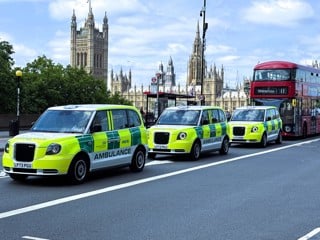Fleet managers have been urged to ‘lead from the front’ to prove their value to employers and tackle the increasingly complex tasks involved in running a modern fleet.
To reflect the car and van transport demands facing organisations, managers need to go beyond business boundaries and lead among suppliers, service providers and contractors, in addition to their role as an internal fleet expert, managers have been told.
The call to action was made among some of the UK’s biggest fleets as they gathered to share best practice advice and information in a regular meeting designed to promote running an efficient fleet.
The members of the Fleet News Fleet200, the network of Britain’s 200 largest fleets, discussed challenges they face across the car and van fleet spectrum.
Mark Cartwright, head of LCVs at the Freight Transport Association, identified key areas where fleet managers had to make their voices heard.
He said: “The key message is leadership. It staggers me how many businesses have every ‘i’ dotted and every ‘t’ crossed in their company, yet they aren’t managing their risks properly in areas such as vans.
“Fleet managers should ask themselves ‘when was the last time you led?’ Inform those around you, spread your influence and get the message across to influence both your organisation and your suppliers.
“Our plea to the industry would be to lead, get involved and make things happen.”
His views were echoed by one of the leading fleet managers in the country, Tony Leigh, head of car fleet services at PwC, which has a fleet of about 2,000 cars.
“I don’t push paper around, I manage,” he said, pointing to recent major cost savings across the fleet that have been achieved with no impact on service or car choice.
Future initiatives will include additional risk management measures to minimising accidents and strategies for keeping costs down while car fleet size increases.
As a salary sacrifice fleet, one of the challenges Leigh has pinpointed is the difficulty facing drivers when choosing a vehicle, because manufacturers produce so many variants of each model.
For example, there are nearly 1,000 variations of the BMW 3-series.
He said: “The volume of choice is amazing. You can have hundreds of variations for a single model, so we have helped people towards making a choice.
“We have introduced a list of top 10s in different categories. This helps people choose and now, as a result of introducing the top 10 listings, 45% of orders are coming from them.”
Fleets attending the meeting listed their priorities for 2014, which identified the critical importance of leadership in achieving their future aims and meeting the challenges ahead.
Reducing and managing costs remains firmly on the strategic map, say fleets, encompassing all strategies related to business motoring from fuel controls to risk management and technology.
The common factor is that fleet managers can’t achieve their aims alone, they have to provide leadership and guide other department heads and managers to help achieve the fleet department’s aims.
One fleet manager said: “We are planning to use managers within the business to oversee and manage our programmes and challenge drivers.
“Our initiatives haven’t worked centrally so we focus on using the management structure within the business.”
One example includes the work pressures that drivers are put under, with 59% of van drivers saying they were likely to speed or take risks because of the demands placed on them.
This pressure can be removed only by direct managers, once they have been persuaded to act by the fleet department.





















Login to comment
Comments
No comments have been made yet.